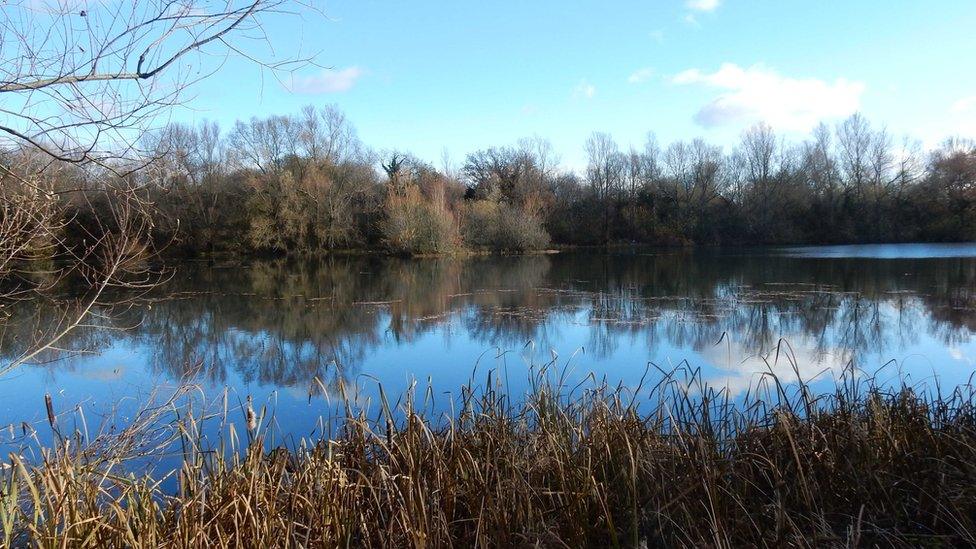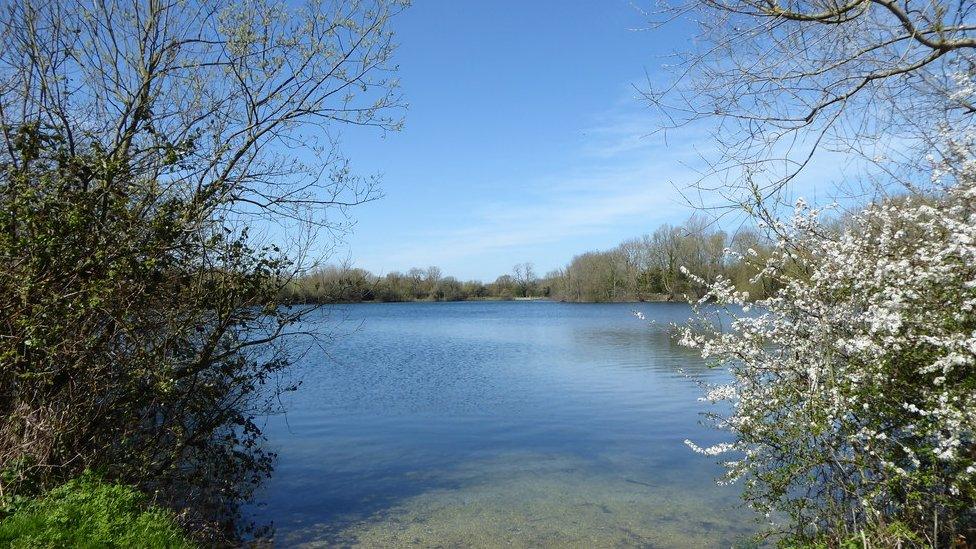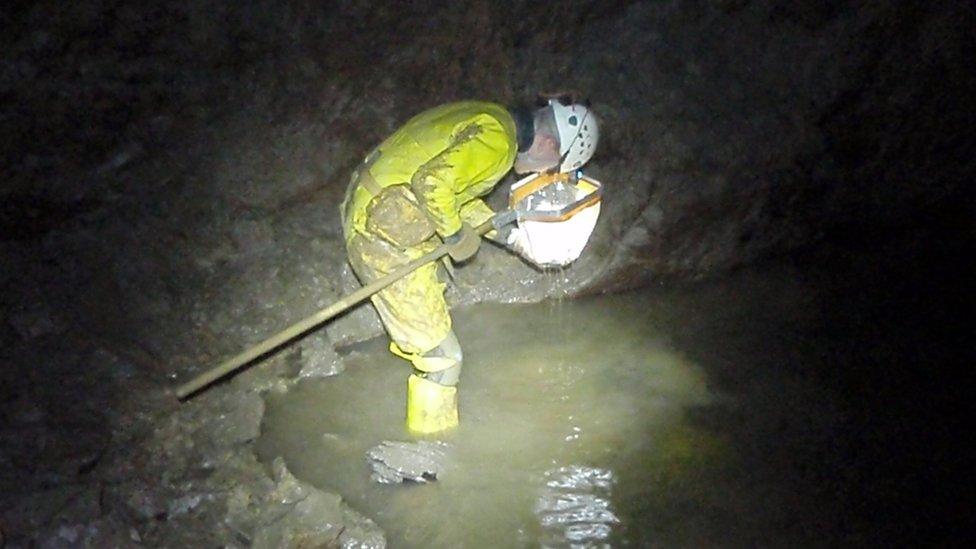Vast man-made lake system given protected status
- Published

Claire Minnet, from Natural England, said it was unusual for a "completely man-made site" to become an SSSI
A 5,000 acre inland man-made lake system has been recognised as one of the UK's most important wildlife sites.
The Cotswold Water Park, which boasts 170 gravel lakes, has been made a Site of Special Scientific Interest (SSSI).
Straddling Gloucestershire, Wiltshire and Oxfordshire, it has been recognised for its biodiversity and its importance to breeding and wintering birds.
Claire Minnet, from Natural England, said it was unusual for a "completely man-made site" to become an SSSI.
The Cotswold Water Park is the country's largest marl [lime-rich] lake system.
The growing complex of lakes, is made when pits left behind by large-scale extraction of limestone gravel fill with water.
'Thrive together'
Ms Minnet said the site not only supports breeding birds but "around 35,000 wintering birds" and "nationally important" aquatic plants.
"It is unusual to have a completely man-made site made an SSSI but that's what makes it absolute unique," she said.
"It's fantastic that places that support business, industry and recreation can co-exist with wildlife and they can thrive together.
"It really does show that people and wildlife can really thrive side by side."
Paul Hazel, from the Cotswold Water Park Trust, said it had "worked for many years" with volunteers, owners and businesses to "protect and enhance the area's wildlife and habitats".
"It is crucial the Cotswold Water Park moves forward as a balanced and sustainable example of how wildlife and people can successfully coexist."
Related topics
- Published2 August 2020

- Published28 January 2017

- Published25 October 2010